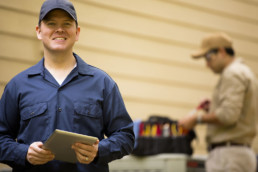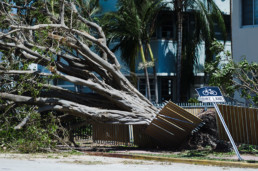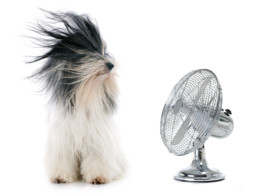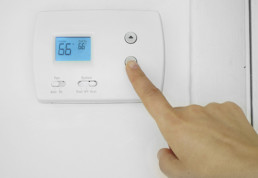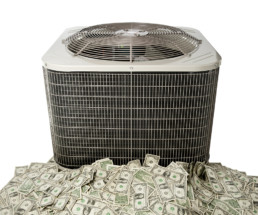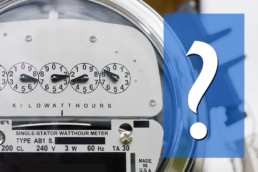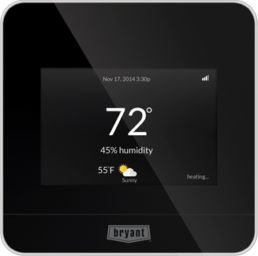Learning About Air Handlers, HVACs and Split Systems
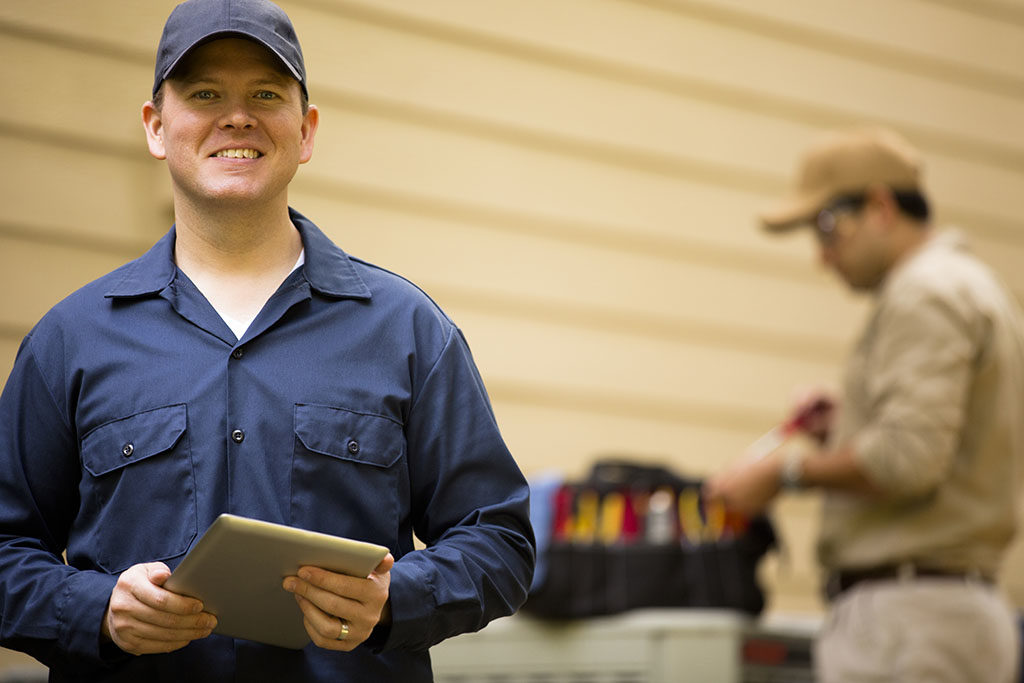
The need for an HVAC system in South Florida goes without saying. While the area has an annual temperature of 82°F its humidity causes the air to feel much hotter. This makes it important to have an air system and air handler that is working at top capacity at all times.
One of the most important parts of your central AC split system is the air handler. Often people are confused about air conditioners believing the whole unit is locate out doors and may not understand the role of the air handler.
Air Handler
The air handler unit is the indoor part of a central HVAC system. With both cooling and heating capability, the air handler is arguably the most important part of a central AC system. Ordinarily located in a building’s interior and may be installed out of the way in a small purpose built closet niche.
Air handlers come in a variety of sizes and flow ratings and are an essential part of a central ac system. Air handlers draw in air from within the home and the air is pulled through coils that contain a liquid coolant. As the air flows over the coils, heat is absorbed into the coils and the air gets cooled. The cool air continues on being pushed by the blower into the building's air duct system. Air handlers also contain filtration to remove particles from the air as it gets cooled. The level of filtration will depend on what sized and types of air filters will fit into the air handler. Some filters can filter out dust and pollen including very small particles even as small as bacteria and other unwanted particles. The filters are essential in HVAC units and allow the unit to perform countless hours without interruption by helping to keep dust from clogging up the vents that surround the coil.
Air handlers also may contain a heater that can be turned on should a heat pump system require additional heat to warm a home, but in the case of Florida, the heaters are rarely needed. In fact most heaters collect quite a bit of dust over the long summer and warm months and that dust may actually smoke and set off the smoke alarms should enough of it build up.
Air Conditioner
The other half of a HVAC system is the out door unit, which most people call the air conditioner (though actually the entire system is the the 'air conditioner').
It is the outdoor unit's job to release all the heat it has absorbed from within the air handler. The coolant from the air handler is pumped into yet more coils that are in the outdoor unit. As in the air handler the coils are encased within vents. The vents increase surface area and aid in heat transfer. At the top of the outdoor unit the large fan forces air through the coils, and in doing so the air absorbs the heat that at coolant has absorbed and removes it from the coolant. The coolant, not cooled is returned inside the home to the air handler to once again absorb more heat and carry it along the cycle.
The outdoor unit usually has five major mechanical parts. These are: a compressor, fan, condenser coil (hot), evaporator coil (cool) and a chemical refrigerant. The hot side is located outside the building and the cold side is located inside. When these parts work correctly the building’s occupants can enjoy an even temperature regardless of the heat or cold outside.
These units are available from a wide variety of manufactures and capacities offering many different features including less noise, energy consumption, longevity, air flow, even more advanced coolants.
In addition to cooling a home, air conditioners perform a function just as vital but not often though of - dehumidifying. When the air in your home is cooled water vapor from cooking, showering and other sources will condense and be drained away. Without this dehumidifying action mold would become a much greater issue in most areas, especially in Florida where we normal have a very high humidity to begin with.
Other Kinds Of Air Conditioning Systems Include The Ductless Mini-Split System and The Terminal Air Conditioner
Split System
A mini-split system HVAC is a ductless unit and contains two parts. A compressor is installed outside, piped through the wall to connect with an inside unit. This makes it possible to cool only one room if desired.
This type HVAC is cost effective and is easier to install than a regular system that requires major installation work such as ducts. All connections are done with electrical wiring and tubing.
There are both mini-split and multi-split arrangements both of which have a thermostat for temperature control. The mini unit consists of an outdoor condenser and a single indoor fan coil. Several of these units can be installed and used to cool an entire building.
A multi unit consists of one condensing unit connected to several air units. When the thermostat is activated all units react simultaneously. While these systems are highly effective, they are not recommended in rooms that do not have the same cooling load.
Ductless split units offer a huge savings on labor and installation cost. In addition, they are small, quiet and powerful and can be modified to fit a wide variety of applications. They have become very popular in recent years with architectural design.
Terminals
Terminals are small units which consist of a coil, air filer and blower, if you have ever stayed in a hotel you likely have seen a terminal air conditioner. While not very efficient, and not a good fit for a home, terminal air conditioners are more simple, and are not a bad option when you only need to cool a small space and do not want to deal with installing air ducts.
When if you need a new unit we, offer high quality products including the complete line of HVAC equipment from Bryant. We also have an emergency service and can have someone at your location in a matter of minutes when your current unit quits working.
At Mahle Cool Air & Heating we offer new HVAC units and heat pumps as well as a "lease to own" program. Regardless of the type of unit you choose, it is essential that it be installed properly if it is to be effective.
We offer 28 years of experience in HVAC installation and repair work in South Florida. All of our technicians are NATE Certified and we offer 100% guarantee on all of our work. We also offer emergency service and reasonable pricing.
Give us a call today at 941-584-6300 and let us help you with your HVAC problems.
Hurricane Irma Power Outages Show Just How Important Air Conditioning Is For Floridians
It is easy to forget how vital air conditioning has become to this society. This device has made regions across the United States livable that would not be otherwise. An AC helps people in Florida feel serene and fresh though the temperature in the region can get quite high. Hurricane Irma has reminded many Floridians that the AC is more vital than they might have thought before.
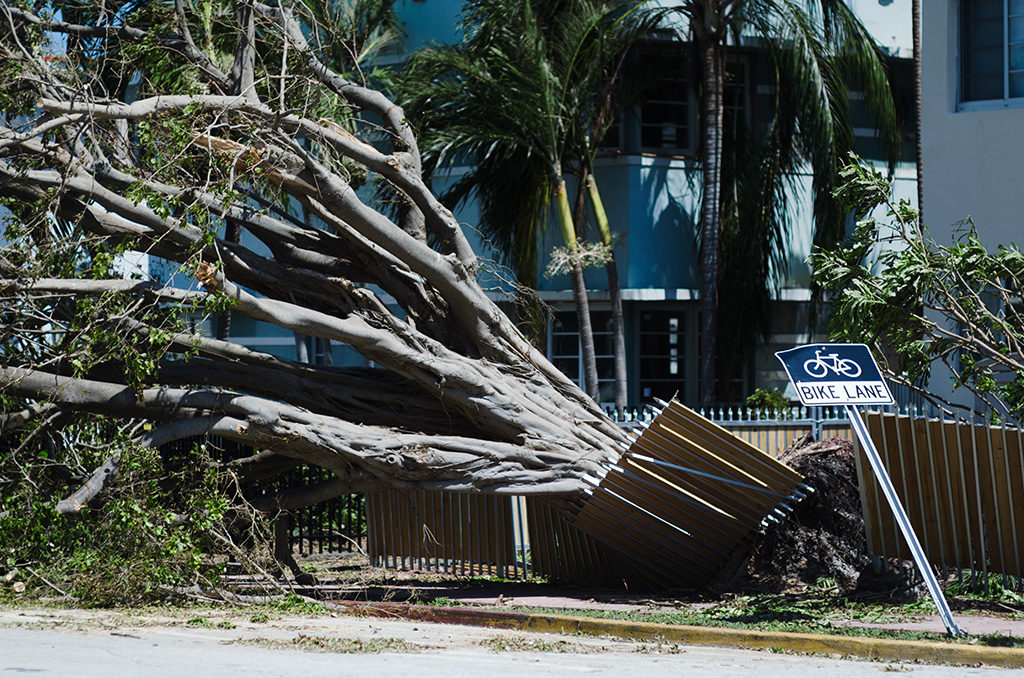
Power outages due to hurricane Irma caused many homes to lose their ability to cool their habitats. One story caught the entire nation's attention since it involved the death of a number of elderly people in a nursing home. No one has clear answers yet, but it seems like the power outage left behind after the hurricane might have shut off the AC, making the home unbearable for those staying in the facility.
The Truth About Florida
Floridians know that the state can be breathtaking. The weather can be nice when it wants to be, and the beaches are dreamy, but everyone knows that nothing is perfect. The state can suffer from all sorts of extreme weather conditions that could lead to things like hurricanes.
This means that flooding and wind damage could occur. Both of these issues could lead to major power outages, which is one reason Floridians need to keep an eye on the weather. It should be noted that extreme weather conditions seem to affect the southern part of the state a little more than others, so areas like Venice, North Port, Englewood, Sarasota, and other nearby areas should do their best to take precautions.
Paying Attention to the AC
It is very easy for homeowners and business owners to take obvious precautions like purchasing adequate insurance, but there are other things that may be overlooked like the AC.
The recent hurricane has shown Floridians that they need to pay attention. Not only is it important to make sure that an issue is addressed by air conditioner repair specialist, but power also needs to be prioritized. The simplest thing that homeowners can do is install a generator, but it does not stop there. Generators are not guaranteed solutions. In fact, these devices need to be tested frequently to ensure that they are in working condition.
It might also be a good idea to talk to an air conditioning specialist about purchasing models that do not use much energy, which could help conserve the generator's power if it is ever necessary. It should be noted that issues with the AC could also overuse electricity in different ways. For example, an AC with a filter that has not been changed in some time might be working a little hard to keep a dwelling cool. The same thing goes with AC systems with air ducts that have not been cleaned. Making sure an air conditioner repair specialist checks the AC helps ensure the AC runs smoothly, which could preserve energy in an emergency.
It should be pointed out that Irma was not able to cause a devastating blackout like the one Floridians suffered back in 2003, which left more than 50 million people without power. In essence, homeowners in the state really do need to plan to deal with outages that may not be taken care of for a while. The power outage back in 2003 was not taken care of for a very long time and was deemed a statewide crisis at the time. Making sure that the machine is working well might become vital at a time, and citizens of Florida have learned this hard truth already.
The fact of the matter is that many cities, communities, and even villages would not be able to survive in many parts of Florida without the comfort of a good AC system. It just goes to show Floridians just how valuable AC experts are and how important it is to have continuous electricity, even if that means using a generator.
Those who want to take a few additional precautions might also want to talk to electrical experts. It might be time to have an expert go through an entire property to make sure that there are no defects that could be affected by a flood more than they should. A good inspection could also highlight any problems with the flood protection measures that are normally integrated in electrical systems. These measures are put in place to protect property and those within the property from things like electrical fires.
There is no doubt that knowledge is power, and being aware of the kind of damage that extreme weather conditions in Florida can cause property owners should make even more be ready for the next threat. This recent hurricane left behind many lessons, including some that are hard to swallow, but these lessons need to be learned.
Of course, the hope is that something like hurricane Irma does not happen again in the state, but hoping for something good does not mean homeowners should ignore the fact that something bad could happen.
Lower Air Conditioning Bills for Your Business
As any business owner is aware, a large cost of maintaining a welcoming environment for employees and customers is making sure that the environment is comfortable--not too hot and not too cold. For most business owners, this means simply eating the cost of high electric bills.
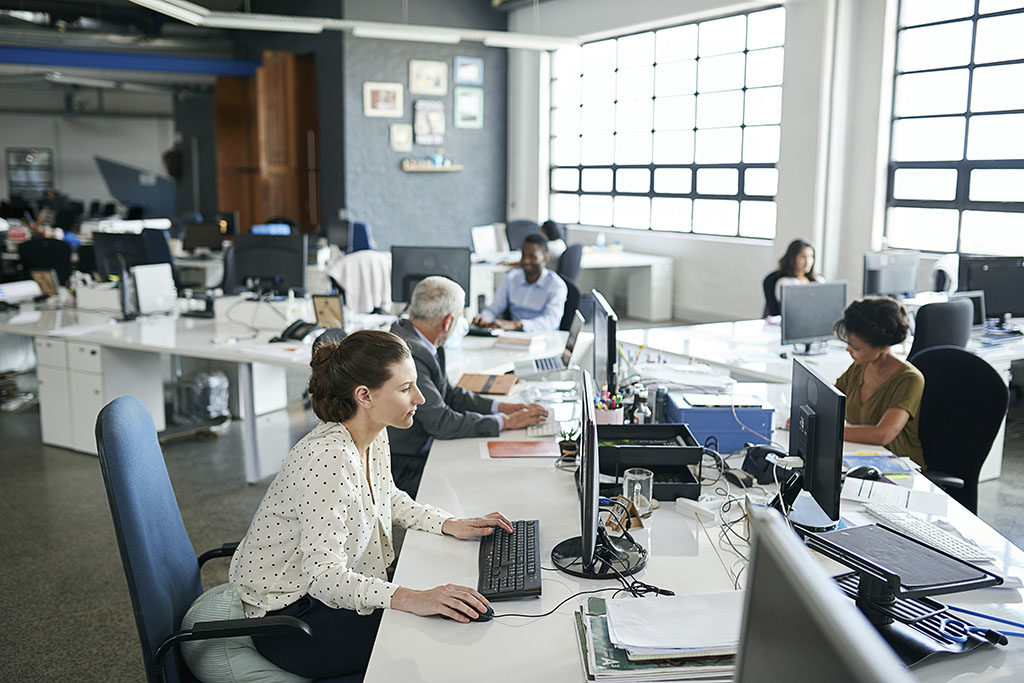
However, there are ways that you can save money and still maintain good indoor air quality throughout your business, many of these are very low cost and can be immediately introduced the same day. Simple things like making sure doors and windows have proper weatherstripping and are kept closed when not being used can end up saving you hundreds of dollars over the course of a year; Many people do not make sure that there is not air leaking around the bottom of doors and windows, or they underestimate the problems (aside from loss of money, air gaps can cause too much humidity which leads to mold, or even pest infestations within a building, particularly if the business is a food based one) and money loss it is causing. Weatherstripping is low cost and can be installed the same day, even by people who do not have any prior experience in doing so.
Now that we have talked about how to use physical barriers to reduce air, we can look at more involved ways to lower AC bills, all the while keeping your business cool and warm enough.
1.Replace Old AC Units
While this is obviously a significant monetary investment, the benefits of purchasing a new unit will by far outweigh the cost; While it is possible, of course, to repair an AC unit, it is often very expensive and will likely not significantly extend the life of a unit that is simply worn out. As an additional benefit, units labeled "Energy Star" can use up to 50% less energy than regular models, saving you even more money.
2. Get a Programmable Thermostat
While this may seem like a no brainer, there are still people who do not have thermostats that can be set on a timer so that less heating/cooling energy will be used when the business is not open. With a programmable thermostat, you can not only set a time schedule for when you use your cooling unit, with many models you can also set individual temperatures for each room according to individual preferences or needs.
3. Remember to Regularly Replace Air Filters
This is another common money saving tip that is often neglected both by home and business owners. An old air filter is an air filter that not only is not performing adequately which means your units will be running more often, costing you money, but it also means that allergens are likely being introduced into the atmosphere.
4. Make Sure your HVAC Unit is not Obstructed
This means that you should keep your unit away from potentially dangerous shrubbery, trees, or other building structures which could potentially damage or ruin it. Remember, your unit will provide you with many years of service if you take care of it.
5. Make Sure your Vents are Open
Some people like to keep certain vents closed because they do not want as much air blowing in that area, etc. This is really not a good idea if it can be avoided--and being able to control the temperature with a programmable thermostat may take the place of closing a vent. Obstructing air flow can shorted the life of your unit, and in some cases, cause overheating or other electrical issues that could potentially be dangerous. Also, heat rises, so running ceiling fan(s) can be another low cost way to keep an area cooler without turning the AC cooler.
As you can see, there are many ways you can both save money and improve the quality of the air in your business and home. If you have questions or are still dealing with high bills after integrating some of these ideas, contact an HVAC professional who can inspect your business or home and give you an estimate of what can be done to improve the quality of your environment.
Why is my air conditioner blowing hot air after running a long time?
There are few things worse than getting your home or office to a comfortable temperature and then having your AC malfunction. But you don't need to have a meltdown; as long as it's blowing air - even if it's warm air - there's hope that it's a minor technical problem that won't require a costly parts or system replacement. Here are some of the most common reasons for an AC unit to start blowing hot, and what you can do to solve the problem.
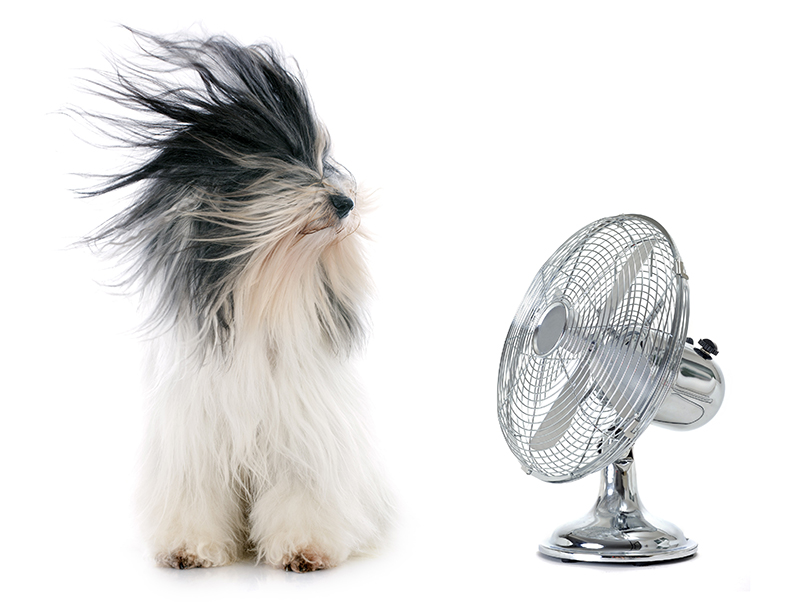
Things You To Check On Your Own
The most common causes for AC problems stem from not having the unit serviced before starting it at the beginning of the warm season, running it full blast, or from simple human error. Regular pre-season servicing will keep your AC running efficiently, and it will allow a technician to spot potential problems before they become costly repairs. Running your air conditioner full blast can cause a range of problems. Not only does it put to much strain on your parts and system, it will cause the whole unit to wear out and need replacement long before it's intended life should be over.
Freezing Up Your Air Conditioner
People run their AC full-tilt for one of two reasons: either the outside temperature is extreme or they turn the unit off when they're not at home and blast it when they return. Both can cause the AC to work too hard and allow the evaporator coil to fall below 32ºF, causing the water droplets that gather inside the unit to freeze on the mechanism instead of evaporating. If ice builds up in your air conditioner it will block the flow of air and prevent cooling. When you keep the temperature set at a consistent level and avoid turning the AC on and off, your unit will run at an even pace and keep a comfortable, steady temperature without over-taxing the system. Experts recommend leaving it set between 76º - 78ºF for warmer climates like Florida while it's in use.
Be Sure The Heat Is Not On Accidentally
Homeowner oversight is also a pretty common issue. Someone may have bumped the thermostat and accidentally set it on warm instead of cool, or you may have forgotten to reset it when winter ended. You can avoid this problem by pre-setting it to a moderate temperature and flipping the switch to auto so it starts when that temperature is reached. Other times the problem is as simple as a clogged air filter or tripped breaker on the outside unit.
Check The Breakers
A breaker just needs to be flipped back on, but if it happens repeatedly, you should have a repair technician take a look to rule out electrical problems. Any system in the home that requires the free circulation of air, whether it's your refrigerator, dryer, or heat pump, needs to have the filter changed regularly. Even if your home or place of business isn't particularly dusty, neglecting the filter will lead to internal systematic freezing and a lot of hot air. Change the filter once a month in the summer and every six weeks in the winter, if it's a combination heating and cooling system.
When It's Time to Call a Technician
If, after checking the temperature, breakers and air filter, your system still isn't running right, the problem may be one of the following:
- a refrigerant leak
- a bad compressor
- faulty wiring, or improper installation, if the unit is new
Unless your system if very old or not well-maintained, all three of these problems are usually caused by overheating due to heavy use. The life of a heat pump or central AC unit is usually between 12 - 15 years; individual parts may last as long as 10 years with regular service and proper usage. If your unit is new, it should still be under warranty from the HVAC company that installed it; parts are guaranteed against defects by the manufacturer for up to two years from purchase. Make sure that you keep your warranty and receipts in a safe place after installing a new AC. Anything not still covered by the manufacturer or installation company needs to be serviced by a professional HVAC technician.
There's no reason you have to suffer from the heat. When your AC starts blowing warm air, check for the simplest solutions first. If checking breakers or changing the air filter doesn't solve the problem, have a professional look at your system as soon as possible. Unless your unit is old or damaged, the problem can usually be taken care of quickly so you can have your space feeling cool and comfortable again in no time.
How does an air conditioner remove humidity?
 During the hot summer months, it's essential you take steps to control the temperature inside your home so that you can enjoy a comfortable and relaxing environment, which can be achieved by using one of the many types of air conditioners. But have you ever noticed how the air temperature always feels warmer when the humidity level is high? This happens because any moisture in the air will retain heat, making the surrounding environment less enjoyable.
During the hot summer months, it's essential you take steps to control the temperature inside your home so that you can enjoy a comfortable and relaxing environment, which can be achieved by using one of the many types of air conditioners. But have you ever noticed how the air temperature always feels warmer when the humidity level is high? This happens because any moisture in the air will retain heat, making the surrounding environment less enjoyable.
Homeowners are often unaware that air conditioners do much more than cool their homes; they also help reduce the level of humidity in the air. But before you learn how an air conditioner can dehumidify the air in your home, you must understand the cooling process.
The Cooling Process
When you turn an air conditioner on, it quickly begins sucking air in and pushing it back out, but at lot happens during that time. Air conditioners contain a chemical refrigerant that can quickly transition from a liquid to gas and back again. When the liquid in the air conditioner starts to evaporate, it absorbs heat from the air around it. Once the air is cooled to a comfortable temperature, it is pushed out through the vent and into your home so that you can enjoy a refreshing environment during the hottest summer days.
The Dehumidification Process
Your air conditioner uses a condenser to change the refrigerant from its vapor form to a liquid. But because your air conditioner takes in air from its environment, the humidity in your home also gets condensed, and dry air is then circulated back into your home as a result. Therefore, if you notice the air in your home seems more humid than usual, then it could be a sign that your air conditioner is starting to malfunction, and you must address this problem promptly before it has enough time to progress.
Final Thoughts
Air conditioners are an essential tool that can control the temperature and humidity inside your home so that you don't have to deal with elevated temperatures. However, air conditioners often give little warning when they are about to break and stop working, but a high level of humidity is one of the first warning signs you will likely notice. If this happens, you must contact a trained air conditioner repair professional as soon as possible. A qualified technician in Venice will take the necessary steps to ensure your air conditioner is working at its best so that you don't need to worry about being without climate control.
How Do Air Conditioners Cool Air?
Air conditioners are something that many of us use without even thinking about it. They make life more convenient in many ways. You can keep an entire home or building cool just by turning on your air conditioner. All you have to do is set the thermostat. Your unit will automatically turn on and off when necessary.

However, there is a lot more involved in cooling a home than most people realize. There are also many parts that work together in order to ensure that cool air is delivered to your home. If one of these parts is not working correctly, then the entire air conditioning system may fail.
Air conditioners and refrigerators work in similar ways. However, a refrigerator only cools a small space inside of a refrigerator. The air conditioner cools the entire home, room or business. Air conditioners use chemicals that can easily be converted from gas to liquid. These chemicals are used to transfer heat from the home to the outside.
There are three main parts of an air conditioner, the evaporator, condenser and compressor. You can typically find the compressor and condenser on the outside part of the air conditioner. The evaporator can be found on the inside. It may be a part of the furnace. The furnace is the part that heats your home.
The fluid is delivered to compressor as a low-pressure, cool gas. The fluid will be squeezed by the compressor. The molecules of the fluid are packed together. Packing the molecules closer together raises the temperature and energy.
When the fluid leaves the compressor, it is a high pressure, hot gas. It then flows into the condenser. When you look at the outside part of your air conditioner, you will need to look for the part that has metal fins around that. This part acts as a radiator. It helps the heat dissipate, or go away, completely.
The temperature of the fluid is cooler when the fluid leaves the compressor. It has also changed from a gas to a liquid state. The liquid is delivered to the evaporator in a small hole. The pressure of the liquid also drops. This causes the liquid to evaporate into a gas.
As the fluid changes from a liquid to a gas, it starts to extract the surrounding heat. The heat separates the molecules in the fluid as it changes from a liquid to a gas. The evaporator's metal fins also help with the heat exchange. The fluid is once again a low pressure, coil gas when it leaves the evaporator. It goes to the condenser, and the cycle starts all over again.
A fan is connected to an evaporator. This fan blows across the evaporator fins and circulates air throughout the entire house. The hot air is not as heavy as the cold air. That is why hot air rises to the top of a room.
There is a vent located where the air goes into the air conditioner and ducts. The hot air helps cool the gas inside of the evaporator. Air is cooled as the heat starts to get removed from the air. The air is distributed throughout the house via the ducts. These ducts are typically located at the floor level.
This cycle will repeatedly continue until the desired temperature is reached in the room that one wants to cool. When the thermostat senses that the room has reached the optimal temperature, the air conditioner will shut off. The air conditioner will turn back on when the temperature inside of the room starts to increase. It will remain on until the room reaches the optimal temperature.
New Air Conditioners - Better For your Wallet, Better For The Environment
Most of us live where some kind of home cooling is necessary, places where temperatures, air quality and humidity make central air conditioning a necessity for health and comfort. However, as with anything, there are costs and impacts to be considered. Energy is expensive, and prices continue to rise. Most of us are also concerned about the impact our energy choices have on the climate. How can we minimize the impact of this necessity on our wallets and our planet?
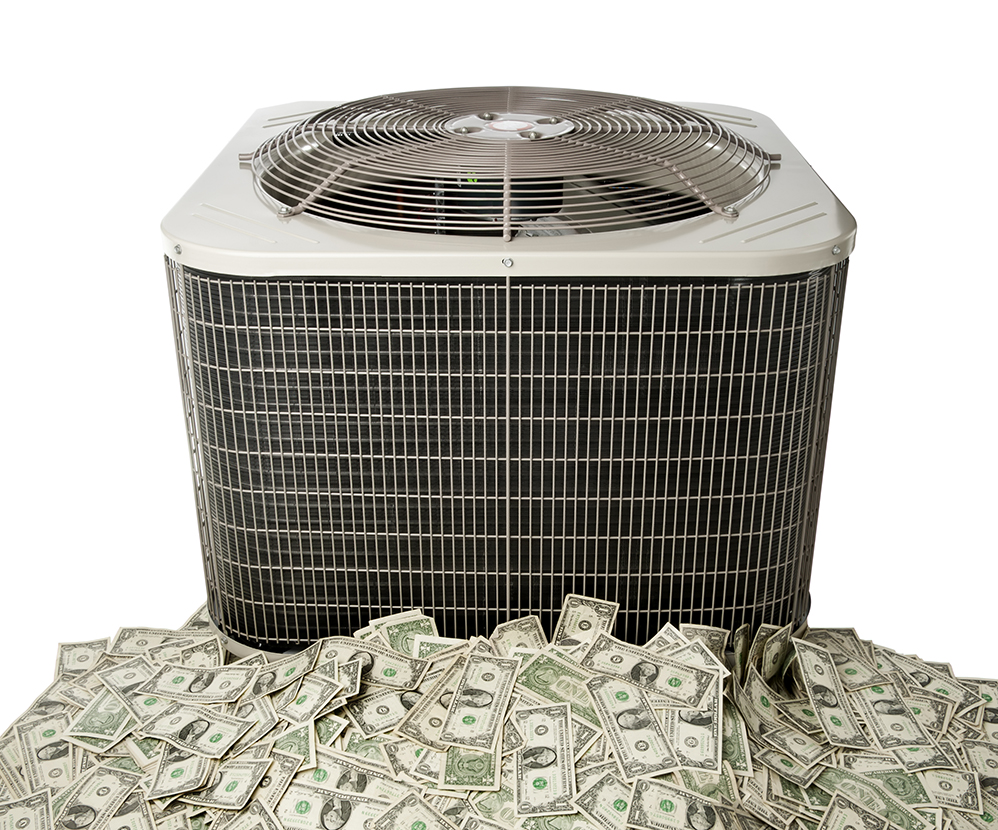
The average homeowner spends about $875 a year on heating and cooling energy costs. This can account for nearly half of all household energy expended throughout the year, and accounts for the majority of energy used during summer months. Naturally, this can be quite a financial burden for the average family. Replacing your present outdated air conditioning unit with a more efficient current model could cut your cooling costs by nearly 30%, making a big difference in the household budget.
Looking beyond the household expense alone, the impact on our environment may be even costlier. In just the United States alone, household cooling generates around 100 million tons of CO2. If every home with air conditioning chose to upgrade their current system to the most efficient air conditioning system available today, CO2 emissions would decrease by nearly 40 million tons. That's a 40% reduction, which is huge. Reducing energy usage protects our planet by reducing harmful carbon emissions and lowering other greenhouse gases. There is clearly great potential for improving the planet's health through energy efficient cooling units alone.
So how can you decide whether your current air conditioning unit needs replacing? If your system is more than ten years old, or it cycles on and off in rapid succession while in use, you should definitely look into upgrading your air conditioner to a newer, more energy-efficient model. Energy usage standards are constantly improving, meaning today's units are far more efficient than those of even five years ago. This is good news for homeowners, since selecting a cost-effective air conditioner is now easier than ever. It would not be unreasonable to expect a 20% reduction in energy consumption from your cooling system when upgrading.
Central air conditioning requires a blower motor, which is usually a part of the home's heating system, in order to move cooled air through the duct work. The best way to guarantee that your newly installed, energy-efficient air conditioner performs at peak efficiency is to install a new furnace at the same time. This is particularly important if your furnace is older than 15 years, as the blowers on older models do not operate as efficiently as current ones do.
Proper maintenance is essential if you hope to achieve the energy rating promised by your new system's literature. To prevent potential problems with your air conditioner from arising, it's a good idea to schedule regular maintenance of your unit with an HVAC technician. They will do a complete tune up of your system, including cleaning and inspection. An annual inspection and tune up before the cooling season begins is best. One tip for remembering to schedule this regular maintenance is to call for a check up when you change the clocks in the spring. One vital maintenance task you can perform yourself is to regularly clean the air conditioner's filter. A dirty filter is a major cause of air conditioning breakdown, and will prevent your system from operating at peak efficiency.
Probably the biggest improvement you could make to your home's overall energy efficiency would be to upgrade the residential air conditioning system to an improved, more energy efficient model. Energy prices continue to rise and show no signs of slowing down. The careful selection of an up to date, energy efficient residential air conditioning system will provide big savings in your home energy budget as well as making the planet a healthier and happier place.
Is a heat pump or central air conditioning system the right fit for your Venice home?
It's a decision that many homeowners in Venice face when its time to replace a malfunctioning or aging heating or air conditioning system:
Should I install a heat pump or central air conditioning system and what exactly is the difference between the two, anyway?
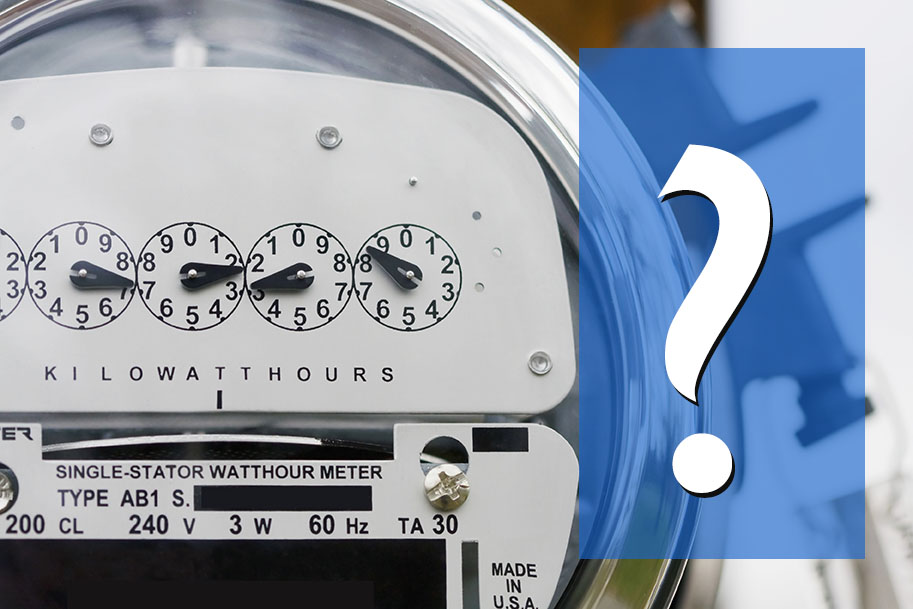
How heat pumps and air conditioners work
First things first. What makes a heat pump a heat pump and an air conditioner an air conditioner? That can be a little complicated. Both use basically the same technology to operate, just in different ways. And that can have a big impact on the comfort level inside your home and in your wallet.
A heat pump relies on a closed loop system that circulates refrigerant so that hot air is blown inside your home during the winter and outside during the summer via what is known as a reversing valve. That means that heat pumps function as a heater during the colder months and as an air conditioner during the warmer months. Since heat pumps function to make your home comfortable all throughout the year, they can also help you keep your energy bills in check. In addition, many heat pumps operate more effectively in temperate climates as we enjoy here. They also use a multi-split ductless system to distribute air throughout your home.
Air conditioners use a closed loop system to circulate refrigerant that cools the air. The refrigerant makes it way through a compressor valve, which puts it under a lot of heat and pressure. The refrigerant then travels through a compressor coil, which siphons off the hot air to outside your home. This process changes the refrigerant into a liquid while it still remains under a great deal of pressure. The liquid is then moved through what is called an expansion valve and from there into a series of evaporator coils. As the liquid evaporates, it works to pull heat from the surrounding air and cools it. That cool air is then blown by a fan through a system of ducts into your home.
Which one is right for you?
By now you may be thinking that there's really not a lot of difference between a heat pump and a central air conditioning system - you're right.
The major differences between the two come into play when you consider how they operate in the winter. And while we who call Venice home may not need to run the heat as much during the colder months as our more northern neighbors do, it can get cold here, so consider the following advantages of heat pumps: Many models do not require additional equipment in order to heat your home, which can free up valuable living space for you, your family and friends. Heat pumps are generally more energy efficient than air conditioning systems, leaving you with more green in your wallet.
And if you are looking to live a more environmentally friendly lifestyle, heat pumps can be partnered with an energy efficient geothermal system such as solar panels and do not burn fossil fuels.
There are also advantages to a central air conditioning system, especially during the winter months. A central air conditioning system will not warm your home as a heat pump will. That means you'll probably use a separate furnace to keep you and your family warm and comfortable when its cold outside. And, furnaces do have several important advantages over heat pumps. They won't shut down when temperatures plummet like many heat pumps will nor do they require auxiliary heating like heat pumps. Furnaces are also generally cheaper to install than heat pumps and have fewer maintenance problems as well. Call or Text us today for more details (941) 203-7955 and don't forget to check out our specials, financing, and rent-to-own air conditioning options. Stay Cool with Mahle!
Wifi thermostats, Bigger Savings Through Easier AC Management
Wifi thermostats continually increase in popularity, and it’s easy to see why! In today’s connected society, almost everyone has access to the Internet at all times. This connectivity led to an explosion of devices controlled remotely, including the Wifi thermostat. This small investment decreases your energy use at home, making you more environmentally friendly, and in time will pay for itself.
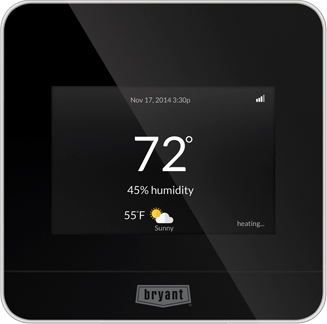
Your Wifi thermostat, or smart thermostats, comes with a state of the art, full-color touchscreen. This attractive screen promotes a user-friendly interface. Some argue that a programmable thermostat provides the same benefits, and they are right to a certain degree. However, most people find programmable thermostats difficult to navigate, never input their schedule, and receive little to no benefit. The user-friendly aspect of wifi thermostats ensures you fully utilize all features.
With its smart setback feature, your wifi thermostat will learn your personal preferences and automatically make adjustments as necessary. The software analyzes patterns in your daily and weekly habits and fine-tunes the temperature accordingly. Before long, it will remember that you stay away later on Wednesdays but come home early on Friday.
Designers realize local weather plays an important part in temperature control and built in a four-day local forecast screen. This display allows you to keep in mind the outside conditions when programming for the day. Perhaps it will be raining, so the house should be warmer when you come in dripping wet.
In addition to making changes via the Internet, wifi thermostats allow for detailed energy use reports. Information is collected from your unit, analyzed, and produced into an easy to read the report. You can use this information to adjust your daily habits to maximize energy efficiency.
Tips to save energy
You will also receive monthly tips on how to increase your energy efficiency based on the data collected. These tips suggest ways to decrease energy use when not at home when to increase the temperature and the optimal time to reset before you come home. Perfect Humidity technology is also included with your wifi thermostat. This technology allows you to maintain optimal cooling conditions based on the relative humidity in your area. Humidity greatly affects how cool your home feels. Seventy-five degrees in zero percent humidity feels much cooler than seventy-five degrees in one-hundred percent humidity!
Several different modes of programming allow you to set up profiles to match your current lifestyle. Use seven-day wide awake programming to actively control the temperature all day. The most commonly used mode, home-sleep, set temperatures for when someone stays at home and when you sleep. Vacation programming enables you to set a return time and temperature.
More control over your temperature
Wifi remote access capabilities allow you to control every aspect of your thermostat from anywhere with an Internet connection. If you remember an appointment after work, you can extend the time you are away from home.
Not only does your wifi thermostat give you complete control, but it also reminds you of important air conditioning and heating maintenance. No more forgetting to change the filter or have the unit serviced. You can also receive alerts for high or low humidity and temperature.
Compatible with humidifiers, dehumidifiers, and ventilators, wifi thermostats can help you control every aspect of the climate in your home with one device. No matter the typical weather where you live, wifi thermostats can lower your energy costs with by regulating several devices.
Hybrid Heat systems can also be managed with your wifi thermostat. This relatively new technology enables you to utilize both gas and electricity to heat your home in the most cost-effective way. Combine with your wifi thermostat to boost savings! Eliminate the need to change between heat and cool with the wifi thermostat, it switches for you! Many cool mornings turn into warm days. If you leave the heat on with traditional thermostats, you may come home to a surprisingly warm house, but not with a wifi thermostat.
Your wifi thermostat also comes with a five-year parts limited warranty with timely registration. Make sure to register your unit to ensure continued functionality. While your system should function properly for years to come, this warranty gives you peace of mind with your investment.
Bottom line
Wifi thermostats greatly increase your energy efficiency and decrease the annual cost to maintain your home climate. They are quickly making traditional and programmable thermostats obsolete and greatly increase the resale value of your home. This small investment pays off not only as you live in the home but if you decide to sell. With exceptional after-sale service, they can’t be beat. Call or Text us today for more details (941) 203-7955 and don't forget to check out our specials, financing, and rent-to-own air conditioning options. Stay Cool with Mahle!
Troubleshooting Air Conditioning Problems: Obstructions Matter
An Issue Some Homeowners Forget
When they encounter problems with a malfunctioning or noisy air conditioning unit, homeowners sometimes forget to check the exterior of the residence. Don't overlook this location! Obstructions around external air conditioning machinery pose problems sometimes.
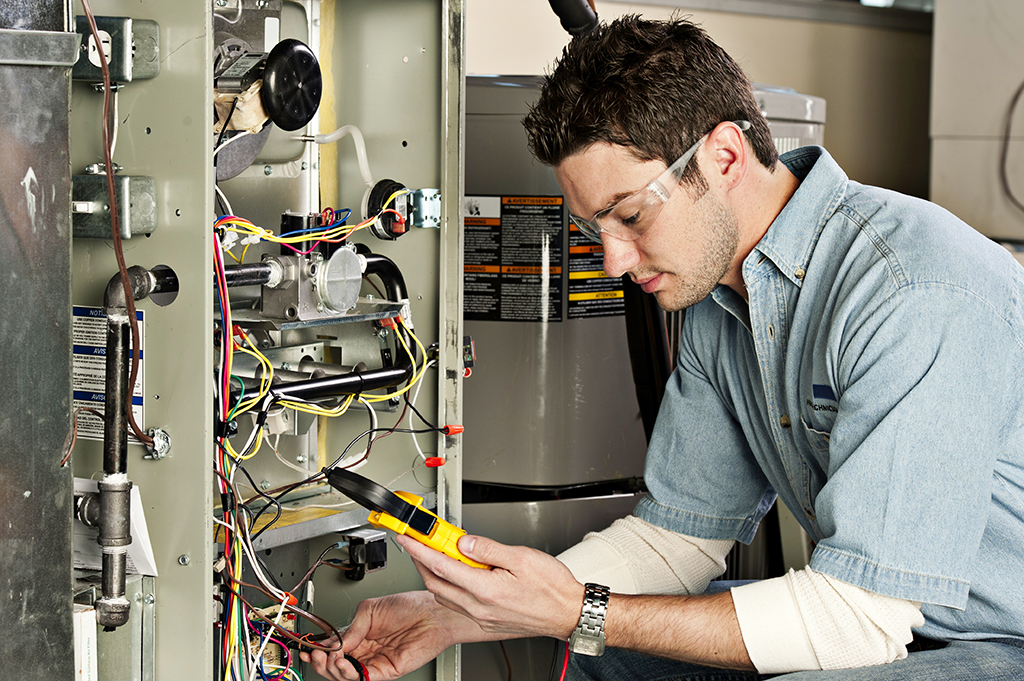
Especially in very warm, sunny, humid climates where gardeners enjoy vigorous plant growth, vegetation may grow rapidly. Florida falls within this category of tropical spots. The wonderful climate in this area promotes robust greenery. Snowbirds, in particular, need to take precautions to prevent air conditioning problems caused by unnoticed obstructions.
For optimum AC unit operation, you should not permit anything to clog or block the exterior of your home air conditioning unit. You'll maintain a much safer premises by taking steps to check this issue periodically.
A Helpful Checklist
One useful step that may assist you in helping to detect problems caused by obstructions proves very simple. Keep a checklist handy. Review these items on a periodic basis:
1. Has sand, cobwebs or debris covered the outside of your air conditioning unit?
2. Do any items of furniture sit too close to the unit to permit safe operation?
3. Has a storm window become an obstruction to a window air conditioner?
4. Have trees, shrubs, grass, climbing vines or other plants begun obstructing the unit?
5. Do household blinds or drapes sometimes blow outside and come into contact with exterior air conditioning equipment?
6. Has trash blown into the area and created an obstruction hazard?
7. Does an exterior fixture, such as a swinging porch or a doghouse, stand too close to the exterior of the unit?
By remaining alert and checking these issues frequently, you'll detect some possible problems before they can cause damage to your air conditioner. The simple step of performing this home maintenance on a regular basis helps promote safer, more efficient cooling. Simply remove obstructions to keep air flows circulating better.
Unavoidable Obstructions
How should a conscientious homeowner handle an unavoidable obstruction? Some older houses in Florida, in particular, may not enjoy efficient window air conditioning units as a result of structural issues. Architects decades ago planned some of these lovely structures without taking highly automated modern home cooling systems into consideration.
One step that might prove helpful in this situation involves reviewing the location of your air conditioning unit carefully. For instance, if your window air conditioning unit or swamp cooler once stood unobstructed, but now sits clogged among mature trees and vines that you would prefer not to remove, re-locating the air conditioner makes sense. The extent of your ability to take this type of corrective action may depend mainly upon the design of the residence.
The Best Sites For Relocated Air Conditioning Units
In a room with a window air conditioner and multiple windows, the issue of finding another site for the unit may not pose a problem. In fact, simply by changing the location of the AC equipment to an unobstructed window, you may enjoy much better air flows inside and outside the home.
Try and find a place for your air conditioning unit that enjoys its own dedicated electrical outlet. Many older units require a lot of electricity. Depending upon the wiring in your residence, you may find that plugging in a vacuum cleaner to a connected outlet will sometimes blow a fuse if the air conditioner operates at the same time.
In the Venice and Sarasota area of South Florida, our company helps residents requiring assistance with these issues. We offer state-of-the-art technology that can provide a solution to this widespread problem. We'll help you discover the best options for cooling your home or office in Florida cost-effectively and efficiently. Call or Text us today for more details (941) 203-7955 and don't forget to check out our specials, financing, and rent-to-own air conditioning options. Stay Cool with Mahle!
